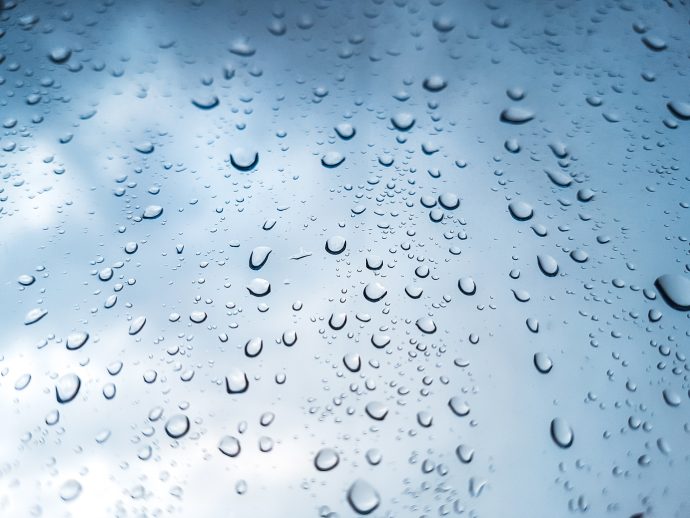Search this site
How Temperature and Humidity Affect Your Adhesive Mix

Humidity can negatively impact your adhesive.
For companies mixing in-house, temperature and humidity are two variables most difficult to control all year long — yet they’re two variables that greatly affect viscosity, pot life, adhesive performance, and cured properties.
Temperature
When the environmental temperature is warmer, a two-part resin and hardener system will be lower in viscosity when mixing, and will react faster. Filled adhesives, such as electrically or thermally conductive systems, may show increased settling and require extra processing steps.
As the reaction takes place, you’ll see a noticeable change in flow properties: the adhesive may not behave the way it would normally. The adhesive may flow too much initially or it may not flow enough if the reaction causes it to thicken faster than usual.
When the environmental temperature is colder, the resin and hardener will be harder to mix due to the adhesive’s higher viscosity. In addition, the adhesive may not wet the surface of your substrate and bond strength will suffer.
Some resins and hardeners will crystallize at lower temperatures as well. If not de-crystallized properly, the adhesive will be clumpy and won’t fully react; bond thickness and adhesive performance may be affected.
Humidity
Humidity is a factor caused by increased moisture in the air. The problem here is that certain curing agents will film or skin over when exposed to humidity.
If your cured adhesive is softer or more foamy, it may be a tell-tale sign your adhesive has been contaminated with moisture.
Unfortunately, re-blending moisture contaminated material isn’t an option; you have to dispose of the material and start over.
To prevent moisture contamination, you would need to blanket the material with a dry inert gas, typically a nitrogen purge. It’s important to do this after every use.
Impact of temperature and humidity on cured adhesives
Once your adhesive is cured, it’s easy to think it’s good to go – and forget about it. But a cured adhesive is just as susceptible to temperature and humidity as it is during mixing or application.
You must choose your adhesive carefully for its end-use environment. You may need a different adhesive if the environment is the very humid southern United States or the tropics – or even near a large body of water, such as the ocean. Moisture can attack the bond line and reduce the bond strength, which could result in premature part failure.
Temperature extremes, such as those encountered in space or even a vehicle engine or its interior cabin, must also be considered. The adhesive bond strength will decrease at temperature extremes.
To mitigate adhesive failure, Appli-Tec can recommend an adhesive that will work in the end-use environment or help design the bond line to maximize part life.
Let Appli-Tec remove your adhesive mixing headache
When you contact Appli-Tec about choosing an adhesive for your application, we’ll ask about end-use environment and will then advise on the best options for you.
And, instead of you mixing your adhesive in-house and worrying about humidity or room temperature, we can test, mix, and package your adhesive as pre-mixed and frozen syringes. Simply take out of the freezer, thaw, and use.
Our mixing environment is temperature- and humidity-controlled, and mixing is performed to a documented procedure with every lot number, quantity and time recorded.
It’s why we deliver defect-free adhesives, every single time.
New Applications
I want to discuss my application challenges, order samples, or place a first-time order.
Existing Applications
I need to reorder an existing part number, I have a BOM/Spec.

